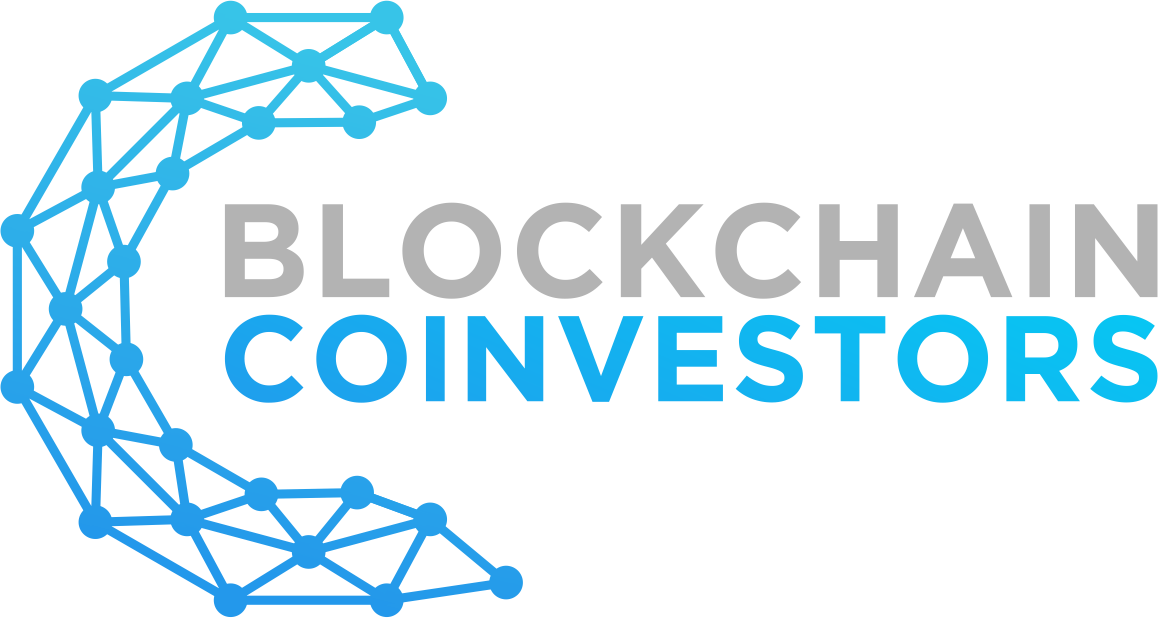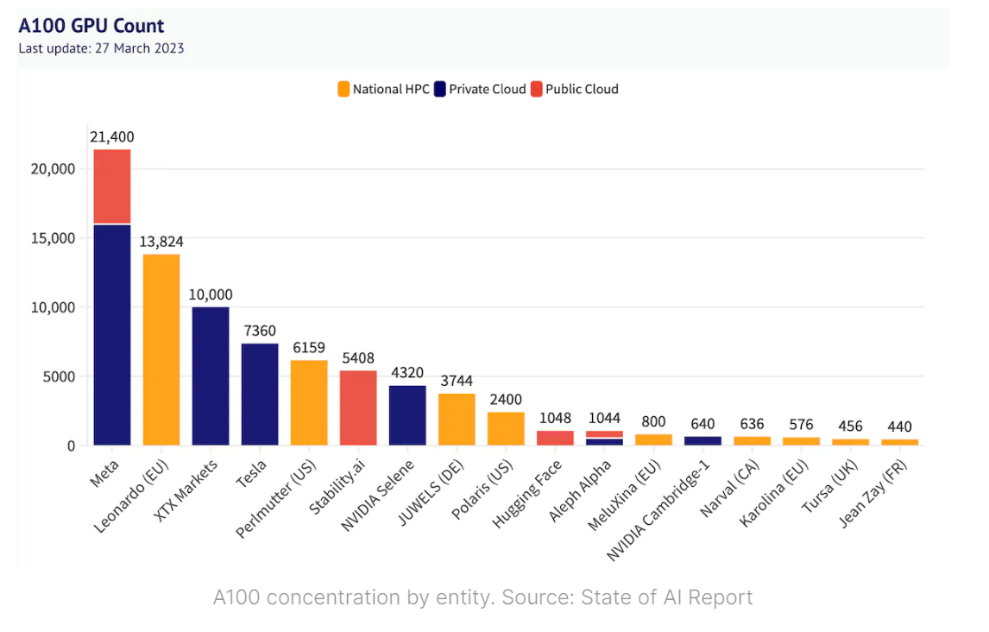Blockchain Meets AI: A Deep Dive on Use Cases
BLOCKCHAIN MEETS AI: A DEEP DIVE ON USE CASES
AI and Blockchain: Shaping the Digital Frontier
In our previous newsletter, we touched on the incredible evolution of AI as the newest advancement in the software development continuum. Complemented by the other advancements in the Fifth Era, AI stands poised to reshape industries across the board, but also to catalyze the adoption of blockchain technology to counterbalance its potential challenges.
But the pressing question lingers: what is the tangible value at the intersection between AI and blockchain?
This week, we'll unravel two intriguing – and current – use cases for blockchain that dovetail with AI—one from the U.S. and the other from right here in London.
We previously highlighted blockchain's indispensability for the digital future and its role in mitigating AI's potential pitfalls. A recap of our thesis:
AI escalates the urgency to restructure the Internet for an inevitable digital economy.
Blockchain remains integral to this tech evolution.
Consequently, AI will spur Blockchain adoption faster.
Our forthcoming Fund VII will capitalize on these burgeoning opportunities. (Stay tuned for more here)
Let's delve right into two current applications of blockchain technology that underscore its imperative use in an AI-dominated future.
Disclosure Note: Blockchain Coinvestors LPs have stakes in these ventures via our flagship fund of funds.
Current AI-Integrated Blockchain Endeavors
Worldcoin: A Secure Digital Identity
Among the challenges with today’s internet, the alarming lack of security and the void of a trusted digital identity system are paramount. Data from the Anti-Phishing Working Group underscores this vulnerability:
1 billion emails exposed in just a year.
A staggering 236 million ransomware attacks recorded in the first half of 2022 alone.
Half of American users had their accounts compromised in 2021.
Businesses bore an average data breach cost of $4.35 million in 2022.
The prime culprit? Phishing attacks, or deceptive attempts, usually via email, phone call, or message, to trick individuals into providing sensitive information, such as passwords or credit card numbers, by pretending to be a trustworthy entity.
In the AI age, these security concerns are magnified. AI, by its essence, can mimic human behaviors and decisions. This means bots, equipped with AI, can orchestrate more personalized and sophisticated phishing attacks. Envision a scenario where your online profiles are leveraged by AI to craft communication that sounds eerily like you - leading to potential identity impersonation on an unprecedented scale. Moreover, paired with new AI-powered video and audio tools, you could be tricked on a video chat or phone call into thinking you are speaking to a family member or close friend!
What the internet needs is a secure system of identity.
Thankfully, blockchain-based solutions can provide identity as a native internet primitive in a secure fashion. This can significantly mitigate – or potentially eliminate – the ability to be tricked by a sophisticated AI-powered bot into thinking you are speaking to a human.
One such example being built right now is Worldcoin, a San Francisco-based project co-founded by OpenAI CEO Sam Altman. Worldcoin introduces the “World ID," a digital passport that confirms its owner is a genuine human, not an AI bot. To obtain this ID, users undergo an iris scan using the "Orb," a silver, bowling ball-sized device. The Orb confirms the user's humanity by analyzing their unique iris pattern, which is as distinctive as fingerprints. After verification, a unique identifier code is generated and stored on Worldcoin's secure, decentralized blockchain, ensuring no one else can replicate it. For added security, these scans are anonymized and cannot be linked back to an individual.
Blockchain technology is fundamental to this solution because, as co-founder Alex Blania pointed out, the decentralized blockchain securely holds World IDs while maintaining user privacy, free from control or influence by any centralized authority and removing a single point of attack vector.
The involvement of Sam Altman, founder of OpenAI – a leading AI firm, is telling as it indicates that those with the most access and insight into how AI technology is evolving see the pressing need for blockchain solutions to counteract AI’s negative effects.
Gensyn – Democratizing the Global Compute Market
Today's internet is marked by a concerning concentration of power, presenting vulnerabilities, and bolstering monopolistic dominance. Consider the evidence:
Search Engines: Over 90% of all global web searches are routed through Google.
Social Media: Meta Platforms, Inc. (previously known as Facebook) boasts around 2.8 billion monthly users, a staggering one-third of the global population. This doesn't even consider their other platforms like WhatsApp, Instagram, and Messenger.
Hardware Monopolies: Companies like NVIDIA, with their groundbreaking A100 GPU designed for AI applications, command an immense share of the market. This gives tech giants, with their access to such hardware and the benefits of massive data centers, a disproportionate advantage over emerging startups.
While the advancements in AI are revolutionary, they come with challenges: AI system requirements are doubling every three months, outpacing the available resources. Effective AI necessitates ever-growing computational power.
In fact, the market for computational power is quickly becoming one of the world's most valuable, mirroring historical rushes like that for oil. With forecasts indicating that machine learning training costs could soon represent 1% of the US GDP, it's clear that computational power is the driving force of our digital age. However, this power is largely in the hands of a few, leading to inflated prices and a challenging landscape for newcomers.
For startups and emerging entities to genuinely thrive in this evolving landscape, a more equitable distribution of resources is imperative. The challenge, and opportunity, lies in harnessing technology to create a more inclusive digital future.
At Blockchain Coinvestors, we envision blockchains as a potential resource equalizer. Blockchains could be a new breed of computer—one that operates autonomously without central oversight. This unique characteristic means blockchains could pave the way for a more democratized digital marketplace, that would not distinguish between large technology giants and smaller enterprises seeking to purchase computation power. Here, computing power, data, and algorithms can be traded directly on a global scale, bypassing the middlemen and potentially shifting the balance of power.
Based in London, Gensyn is at the forefront of blockchain technology, revolutionizing access to computational power. This marketplace protocol directly connects those in need of machine-learning computation with entities possessing underutilized computational assets. Here’s how Gensyn stands out:
Broad Resource Utilization: Beyond harnessing large data centers alongside smaller devices, Gensyn leverages diverse computational resources, from personal gaming PCs to M1 and M2 Macs and even smartphones. This approach has the potential to amplify the available computational capacity for machine-learning by anywhere from 10 to 100 times.
Layer-1 Protocol for Seamless Operation: As a layer-1 protocol dedicated to deep learning computations, Gensyn rewards its contributors in real-time. Those who allocate their computing resources to the platform receive immediate incentives for completing machine-learning assignments.
Autonomous and Transparent Transactions: One of Gensyn's standout features is its autonomous operation. It doesn't rely on administrative gatekeeping or require intricate legal frameworks. Through the use of smart contracts, the protocol autonomously assigns tasks and manages payments, ensuring transparency and trust within the network.
Cost-Effective Solutions: By sidestepping dominant cloud service providers, such as AWS, Gensyn is able to drastically cut down on computational expenses. This ensures users access superior computational power without the inflated costs associated with mainstream providers.
By integrating blockchain technology into a peer-to-peer network, Gensyn is poised to democratize the world of machine learning computation. It not only promises a more inclusive landscape but also offers an affordable pathway for entities ranging from startups to established firms.
The View from London
In the ever-digitalizing global economy, AI is poised to intensify many of the negative externalities we associate with the contemporary internet. Yet, blockchain stands as a counterforce to these challenges, and hence we believe its adoption will accelerate alongside AI’s adoption.
Worldcoin, under the helm of notable AI pioneer Sam Altman, represents a solution to the escalating security concerns, providing a robust identity verification system built on the foundations of blockchain. This system paves the way for a safer internet where individuals' identities are safeguarded from sophisticated AI-driven impersonations.
On the other hand, Gensyn exemplifies the transformative potential of blockchain to allocate computational power. In a landscape where AI computational requirements are skyrocketing and access to resources is concentrated among few tech giants, Gensyn's decentralized marketplace levels the playing field.
These integrated applications of blockchain with AI underscore the tangible value and lucrative opportunities that lie at the intersection of these two technologies.
The mandate for forward-thinking investors, including us at Blockchain Coinvestors, is unmistakably clear:
Immediate Action: Dive into the upcoming wave of blockchain innovations by investing now.
Expert Collaboration: Partner with the most esteemed investors in the blockchain domain.
Strategic Diversification: Ensure a comprehensive and varied portfolio spanning all major blockchain investment themes globally.
Discerning Investments: Opt for follow-on investments, but only when the industry's leading investors recognize a truly standout opportunity.
Efficient Platform: Execute all the above on a cost-effective, institution-grade platform.
This encapsulates our investment approach at Blockchain Coinvestors.
Our Commitment to You
Our offering allows you to make a singular investment yet reap the benefits of a globally diversified exposure to premier early-stage blockchain ventures, all hosted on a robust institutional platform.
Experience our value proposition firsthand by joining our latest Fund of Funds - Fund VII. Interested? Let’s delve deeper. Schedule a conversation with our team to learn more.
Thank you for reading.
Mitch Mechigian,
Partner, London
ABOUT BLOCKCHAIN COINVESTORS
Blockchain Coinvestors is the best way to invest in blockchain businesses. Our vision is that digital monies, commodities, and assets are inevitable and all of the world’s financial infrastructure must be upgraded. Our mission is to provide broad coverage of early stage blockchain investments and access to emerging blockchain unicorns. Blockchain Coinvestors’ investment strategies are now in their 10th year and are backed by 400+ investors globally. To date we have invested in 40+ pure play blockchain venture capital funds in the Americas, Asia, and Europe and in a combined portfolio of 750+ blockchain companies and projects including 75+ blockchain unicorns. Blockchain Coinvestors’ first fund of funds ranks in the top decile amongst all funds in its category on both Pitchbook and Preqin. Headquartered in San Francisco with a presence in London, New York, Grand Cayman, Zug and Zurich, the alternative investment management firm was co-founded by Alison Davis and Matthew Le Merle.
"The best way to invest in Blockchain businesses"





